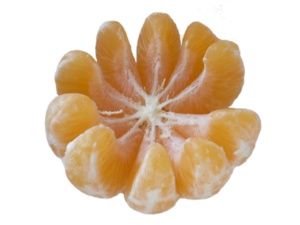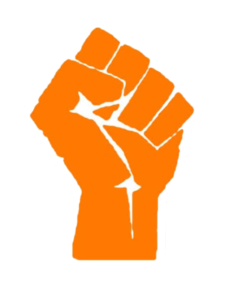The Orange Union: a New Road to the Promised Land for Nigerians
Why the ‘Orange’?
 The civilisational concept of ‘the Orange Union’ is inspired by Nature’s gift to mankind by way of the orange citrus fruit. As with the fruit, it is a concept whereby humanity enjoys the peaceful harmony of a union within which the separate segments are distinctly and uniquely covered by a soft internal border, while the shared cover is the much firmer peeling acting as the external border to the rest of the world.
The civilisational concept of ‘the Orange Union’ is inspired by Nature’s gift to mankind by way of the orange citrus fruit. As with the fruit, it is a concept whereby humanity enjoys the peaceful harmony of a union within which the separate segments are distinctly and uniquely covered by a soft internal border, while the shared cover is the much firmer peeling acting as the external border to the rest of the world.
In the Orange Union proposed for Nigeria, each segment represents a unique, historic, ethnic group/nation, maintaining its fullness of identity, self-determination and integrity, with the added benefit of a jointly negotiated common ground of interest deemed as mutually nourishing and protective.
Why a New Road?
The old road has demonstrably failed. That road, of political union towards ‘One Nigeria’, was explained by one of its principal architects, Sir Peter Smithers (Parliamentary Private Secretary to the Minister of State and the Secretary of State in the Colonial Office from 1952-59 in the run up to Nigeria’s independence. He was also the Secretary General to the Council of Europe from 1964-1969) as follows:
Sir, During the negotiations for the independence of Nigeria the view of the Secretary of State at that time, with which I agreed, was that in Nigeria we should attempt to put together a large and powerful state with ample material resources, which would play a leading part in the affairs of the continent and the world. This was attractive but it involved forcing several different ethnic and cultural groups into a single political structure.
The negotiations were complex and very difficult, the chief problem as I remember relating, significantly, to the control of the police and the military.
In the retrospect of 40 years it is clear that this was a grave mistake which has cost many lives and will probably continue to do so. It would have been better to establish several smaller states in a free-trade area.
In exculpation it must be said that we did not then have the examples of the collapse of Yugoslavia and of the Soviet Union before our eyes. It should now be clear for all but the wilfully blind to see that it is extremely dangerous to force diverse racial and social entities into a single rigid structure such as that which is being built upon the foundation of the Maastricht treaty. Recent history suggests that it would be best to complete the development of the Common Market and to call a halt to political integration in Europe.
Times, July 15, 1998
This old road, passing through successive territorial amalgamations, from 1900, and via a variety of governance models, since 1946, – ranging from limited franchise to universal franchise, Parliamentary to Presidential, interspersed with periods of military rule and civil war – entailed squeezing the more than 371 pre-existing ethnic groups and nations into becoming ‘one people’, in a winner-takes-all political arrangement.
This exercise in futility reached its nadir with the 2023 General Elections, with allegations of unprecedented levels of electoral malpractice including, most especially, by the Independent National Electoral Commission after spectacular assurances of full transparency in the vote counting process. The new confident taunt of the victors for the losers, in the win-at-all-costs game, is “Go-to-court”.
Why still have a Union at all?
The evidence suggests that most Nigerians want to stay together in some form of union provided it can work in their interests. What they clearly do not want is a union that is held together by force of arms only, with its attendant high cost in human lives and aspirations. Simply put, like all civilised people, they want a consensual union that is held together by shared interests.
The objective of the Orange Union is to ensure the full self-determination of each ethnic nation whilst providing a platform for joint collaborations on equitable terms and magnifying the international prospects of the collective.
To this end, each ethnic nation or a small collective of ethnic nations, will be a self-governing polity that will manage its own affairs according to a self-determined local constitution derived from the history, ancestry, consensus and future prospects of the citizens within that given polity.
This recognizes the fact that an agreement arranged at the closest, and smallest possible, level of similarity ensures the strongest possible bond for common progress. The propensity for disagreement between naturally similar characters is far less than that of distant characters.
The homogeneity factor within the same ethnic nation entails the longest possible element of co-existence by way of shared ancestry, history, language, culture, traditions, lifestyle, mentality, territory, exposure and posterity. This homogeneity factor increases the basis for effective and smooth community involvement in realistic governance activities. This is the safest and most conflict-free model which allows even the smaller communities within the same ethnic nation a significant degree of autonomy.
Accordingly, each polity will have its own ancestral borders, governance structure, judicial system, official language, education system, healthcare system, resource management, internal autonomous regions, military defence structure, police service, finance institutions etc.
How will the Orange Union work internally?
The Orange Union model brings responsibility home to each community in the conviction that a community that cannot cater for itself is incapable of offering care or governance to other near or distant communities. It becomes very obvious that a representative from such an incapable community is unlikely to preside efficiently over the affairs of other communities. Simply put, it is difficult to tidy up other people’s houses when your own house is completely untidy. Citizens of member States of the “Orange Union” can reside, travel or work across the territories of the “Orange Union” based on mutually arranged diplomatic frameworks for security, trade and citizenship.
How will the Orange Union work externally?
The Orange Union restores our civilisation, as nearly as possible, to the way we were before the Berlin Conference of 1884-85. It does so in a way that is simultaneously consonant with the Article 2(4) of the UN Charter principle of the territorial integrity of States and the Article 1(2) principle of the right of self-determination of colonial peoples.
Fatherland Group
Fatherland Group (FG) is a global network of forward-thinking Nigerians armed with a new understanding of their past, their present and their future.
For more information about the Orange Union and Fatherland Group contact:
[email protected]
www.fatherlandgroup.org
+447960933267
Subscribe
Useful Links
- PostsOpens in a new tab
- A Power Sharing Constitution for NigeriaOpens in a new tab
- The Orange Union PrincipleOpens in a new tab
